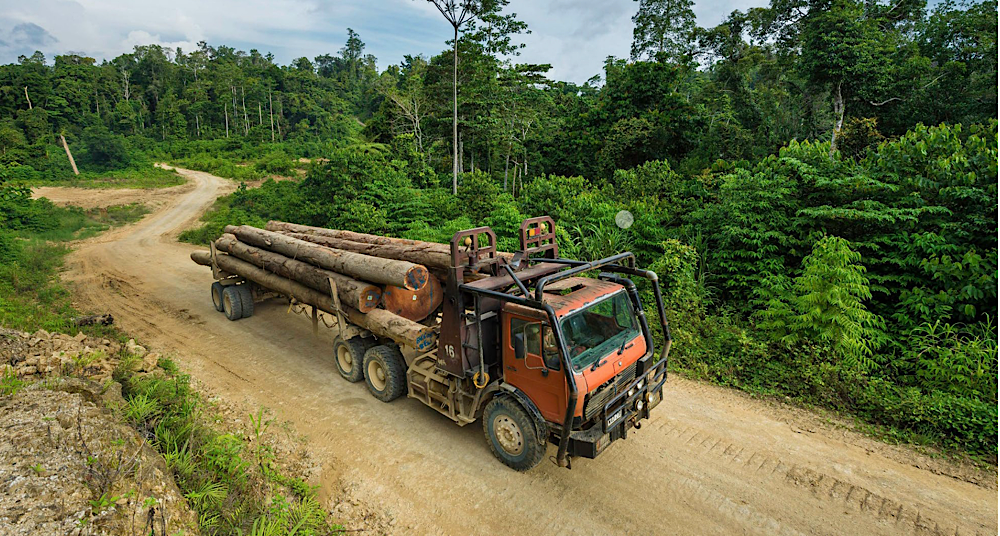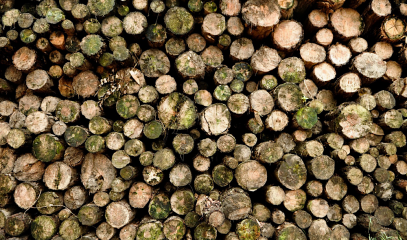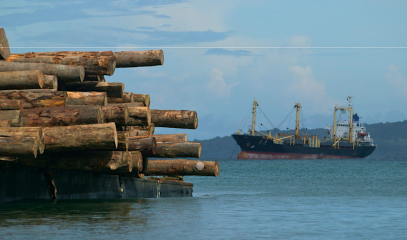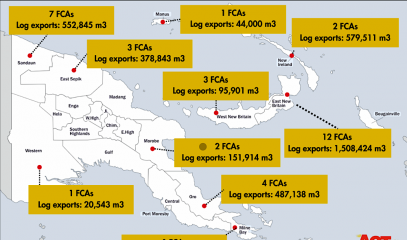Caritas PNG: a new deforestation law against illegality and trafficking
A report prepared by ACT NOW and Jubilee Australia brings the issue of deforestation back to the forefront. The focus is on issues related to the application and implementation of logging licenses, which are exploited for different purposes. It is necessary to ensure better control of the timber industry and develop local employment and income.
Port Moresby (AsiaNews) – Logging in Papua New Guinea is again under the spotlight following the publication of a new report in May by community advocacy organisation ACT NOW and the Jubilee Australia Research Centre. It summarizes data and publications already available to the public but focuses on issues surrounding application and correct implementation of logging licenses.
There are three types of logging concessions in PNG under the Forestry Act 1991. The Forest Management Agreements allow for the cutting of selected timbers in a defined area where the general conditions of the rainforest are meant to be preserved. The Forest Clearing Authorities (FCAs), in contrast, are concessions provided in view of agricultural activities and other land use changes to totally replace the original rainforest. The Timber Authorities allow for limited log harvesting for local and domestic processing. The report from Act Now and Jubilee Australia concentrates on the Forest Clearing Authorities concessions, which constitute 38% of the total PNG export of logs.
A moratorium on stopping the issuing of new FCAs and an audit on the existing ones had been called for since 2011 by different forestry and environmental watchdogs. It was eventually issued in January 2023 by the PNG Forest Authority, though no audit report has yet to be released. It is alleged that irregularities occur both in the application and implementation of the FCAs.
At the application stage what is questioned is sufficient evidence of the agricultural plans expected to be developed and the capacity of companies to implement them. The projected area for logging is also frequently larger than the prospective agricultural project. The local community consent, a legal requirement, is not always being properly sought; and disputes, divisions, tensions and corruption of landowners and their associations are rife.
When it comes to the implementation stage of the logging concessions, Act Now and Jubilee Australia claim that the Forest Clearing Authorities are effectively applied as Forest Management Agreements, where selective logging is actually being practiced rather than complete clearing; that way revealing a lack of interest and no real plans for future agricultural projects. It is simply large-scale logging, which contradicts the nature of the FCAs and could qualify the activity as illegal.
Government control of the logging industry in Papua New Guinea is weak (due to shortage of financial and human resources for enforcement duties) or complicit. Act Now and Jubilee Australia recommend drastic initiatives to reestablish control of the sector, beginning with the suspension of all log exports from FCAs until the legality of their applications and their actions are independently and publicly assessed. No new licenses should be issued before all the existing FCA projects have been audited and the findings published. Law enforcement agencies should verify possible breaches of criminal laws, and commercial banks identify customers connected to FCAs and conduct a thorough check on money laundering and social responsibility policies. Overseas timber buyers must also ensure that all logs originating from PNG are independently verified as legally harvested by an approved and sustainably managed source.
As countries now generally tend to verify the regularity of imported logs, there is a need to check that not only is a proper license and export permit always in place, but the legality of the process is assessed and guaranteed at all stages. Ninety per cent of PNG logs are exported to China where they are processed for the local market or again exported as finished product. China bears a great responsibility on the actions of the PNG logging industry and its application and implementation practices.
In summary, by quoting from the Act Now and Jubilee Australia report (The FCA Logging Scandal, May 2025, p. 8): “Papua New Guinea’s forests are globally important. New Guinea island is home to the world’s third-largest contiguous rainforest and is its most botanically diverse island. The forests of PNG are an important carbon sink and an essential part of global plans to reduce global warming. They also sustain the lives, livelihoods and cultural traditions of millions of rural people. Like many other Pacific countries, PNG’s population is overwhelmingly Indigenous, with as much as 95 per cent of land under traditional tenure and customary land rights are recognised in PNG’s legal framework. Increasingly, there is global recognition of the sophistication of PNG’s traditional ecological knowledge. However, for decades, PNG’s forestry sector has made national and international headlines over a series of logging scandals. Today PNG stands as the world’s largest exporter of tropical logs. Logs harvested under a single permit type – a Forest Clearing Authority (FCA) – account for a third of PNG’s total log exports. This is particularly alarming as a FCA’s primary purpose is not to enable large scale or long-term logging, but to support agriculture and other land use changes by allowing any necessary forest clearing”.
The need to once again investigate the logging practices in Papua New Guinea appears to be urgent and evident. “In another worrying development, in January 2024, the independent monitoring of log export volumes and species declarations by the international surveillance company SGS (Society General Surveillance) was suspended due to the nonpayment of outstanding invoices by the PNGFA. This was despite the program generating an estimated K35 million a year in additional tax revenue against a cost of K7.3 million. The suspension of the log export monitoring means there is no reliable data for 2024 on the volumes of logs exported from PNG or the output from individual concession areas” (The FCA Logging Scandal, May 2025, p. 12).
The fact that the issue came to the attention of the Special Parliamentary Committee on Public Sector Reform and Service Delivery, chaired by Oro Governor Garry Juffa, which convened on 29 May 2025 to investigate the matter, is reassuring as far as the pertinent government agencies are pressured to comply with respective duties and responsibilities. Ideally, local downstream processing and production of sawn timber are replaced by outright export of logs. It will take time and investment capitals, still likely to come from outside the country, but it would ensure better control of the logging industry and provide local employment and income.
* PIME missionary, Caritas PNG Advocacy
17/08/2022 11:23










.png)










